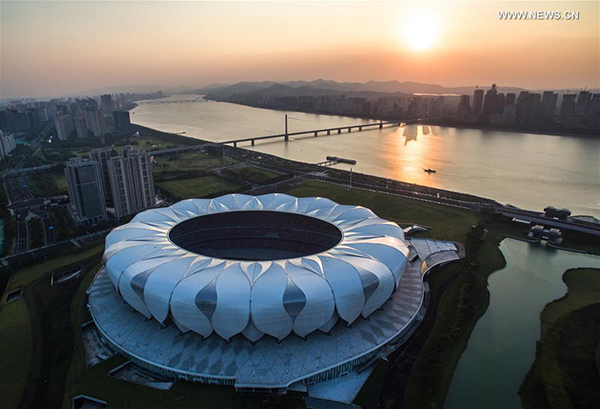No need for G20 to discuss overcapacity

Photo taken on Aug 25, 2016 shows the Hangzhou Olympic Sports Center in the Binjiang district of Hangzhou, capital of East China's Zhejiang province. Hangzhou is the host city for the upcoming G20 Summit.[Photo/Xinhua]
Some developed countries want China's excess capacity to be put on top of the G20 summit agenda that starts in Hangzhou, Zhejiang province, in less than a week. Should the G20 summit focus on the issue?
People's Bank of China Governor Zhou Xiaochuan made a key point at the China Economists 50 Forum in February: Since China's overcapacity is a domestic issue, it should be resolved within the country, not at international conferences, in order to keep trade protectionist tendencies away.
We need to have a clear understanding of the correlation between overcapacity and international trade. People generally believe global trade is all about "absolute comparative advantage," as Adam Smith put it in his Wealth of Nations. But Zhou said:
"It does not conform to theories of classical economics, where, even without factoring in differences in resource endowments, a country may have higher capacity and therefore higher output of a certain product as a result of labor division; and, by the same token, other countries may have stronger production capacity and output of other products. This reflects clustering of production skills and equipment."
In other words, global trade is not possible without excess output capacity, as David Ricardo postulated in his theory of relative comparative advantage.

 Print
Print Mail
Mail
 20 Cultural Symbols
20 Cultural Symbols Why Zhejiang
Why Zhejiang Experiencing high-tech products at WIC
Experiencing high-tech products at WIC Zhejiang Release
Zhejiang Release Zhejiang News
Zhejiang News